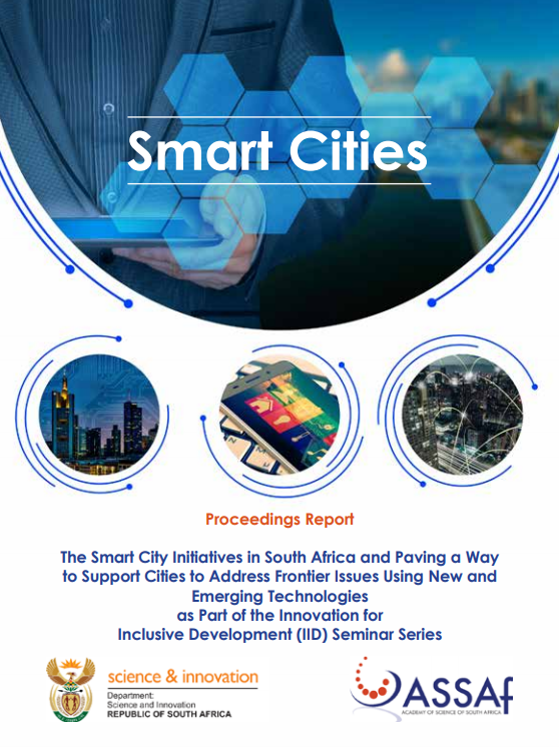The Smart City Initiatives in South Africa and Paving a Way to Support Cities to Address Frontier Issues Using New and Emerging Technologies

These proceedings report on the Innovation for Inclusive Development (IID) seminar hosted by the Academy of Science of South Africa (ASSAf) in partnership with the Department of Science and Innovation (DSI). The intention of the seminar was to solicit input from various stakeholders that will feed into a number of processes and ongoing consultations to define characteristics of a smart city in the South African context, and how the concept aligns with the 2019 White Paper on Science, Technology and Innovation. The discussions acknowledged that technology was but one element of a smart city. However, to establish a common vision for the South African smart cities and establish cities that are inclusive and liveable; more productive, efficient and competitive on a global scale; environmentally, socially, financially and economically sustainable; and resilient to the effects of climate change, other aspects, including but not limited to, need to be considered:
- A clear definition of what smart cities are in the South African context.
- South African smart cities should link to the global market but provide solutions to local problems rather than trying to compete with first world countries.
- National framework for smart cities in South Africa, which clearly defines roles and responsibilities of the key stakeholders (government, private sector and civil society) need to be integrated. There must also be alignment with the SDGs and the NDP.
- Policies need to be flexible and amendable in line with the 4IR.
- The government needs to first address all the existing challenges faced by South African cities rather than emulating first world smart city models.
- The building blocks of smart cities, including: STEM education, citizen rights, enablers (such as power, water and internet connectivity), urban versus rural, regulations, and shared goal and vision, need to be taken into consideration.


Comments